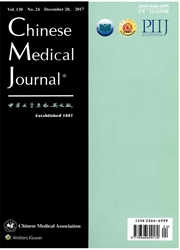

 中文摘要:
中文摘要:
在 China.Data 考察历史和关于正染色体的主导的 polycystic 肾疾病( ADPKD )的研究的最近的开发的目的采购中国、英语的文学在 MEDLINE/CD ROM 被寻找( 1979 - 2006 )并且中国生物医学的文学磁盘( 1979 - 2006 ) .Study 选择从大陆关于 ADPKD 出版了文章中国被选择。数据主要从在包囊解压缩手术和变化分析上的初步的报告代表的这 review.Results 一些的引用节被列出的 58 篇文章被提取对从历史上的中国的 ADPKD 研究的贡献。关于最近的年里的 ADPKD 的基本研究和临床的研究的一个连续剧也被总结了。为 ADPKD 研究的一个技术平台第一被建立。genomics/proteomics/bioinformatics 途径被介绍,它为理解致病提供很多珍贵信息。由使中毒全部 PKD1 和 PKD2 基因定序为中国汉人口屏蔽系统的高效液体层析(DHPLC ) 技术成功地被建立了。基于中国病人,的典型数据一个综合治疗协议在传统的治疗上被提出并且赢一个优点。治疗上的一些新奇试验性的研究也是令人鼓舞的。在中国的 ADPKD 研究的结论显著进步最近被取得了。包括政府支持,国际合作和更中国的 nephrologists 的活跃参予,仍然,许多工作应该被提高在不久的将来推进这个过程。
 英文摘要:
英文摘要:
Objective To review the history and recent development of research on autosomal dominant polycystic kidney disease (ADPKD) in China. Data sources Both Chinese and English literatures were searched in MEDLINE/CD ROM (1979 - 2006) and the Chinese Biomedical Literature Disk (1979 - 2006). Study selection Published articles about ADPKD from mainland of China were selected. Data were mainly extracted from 58 articles which are listed in the reference section of this review. Results Some preliminary reports on cyst decompression surgeries and mutation analysis represent the contribution to the ADPKD research from China in the history. A serial of basic research and clinical studies on ADPKD in recent years also have been summarized. A technique platform for ADPKD research was firstly established. The genomics/proteomics/bioinformatics approach was introduced, which provide a lot of valuable information for understanding the pathogenesis. By denature high performance liquid chromatography (DHPLC) technique the entire PKD1 and PKD2 gene sequence screening system for Chinese Han population has been successfully established. Based on the characteristic data of Chinese patients, an integrated therapy protocol was put forward and won an advantage over the traditional therapy. Some novel experimental studies on therapy also were encouraging. Condusions Remarkable progress of ADPKD research in China have been made recently. Still many works, including the government support, international collaboration and active participation of more Chinese nephrologists, should be enhanced to advance this process in the near future.
 同期刊论文项目
同期刊论文项目
 同项目期刊论文
同项目期刊论文
 期刊信息
期刊信息
